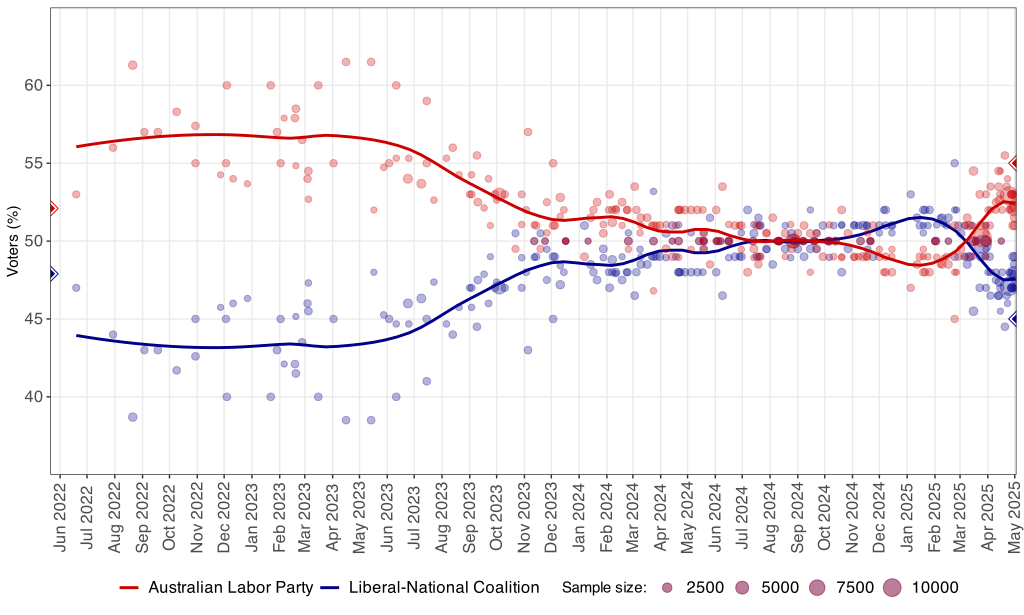The Problem of Small Folk
Relax, this will have nothing to do with genocide or eugenics I promise.
A Salute to the Ordinary
Congratulations, you are an ordinary, or modal (most frequently occuring) person. One of them at least, of the many many ways to be modal, you like me, are probably most. Neglected by "The Great Man" theory of history, "successologist" podcast hosts, but celebrated by brutal dictators and wannabe totalitarians as a pretext for crushing their "elite" political rivals and the subject of "slice of life" comics, indie movies and zines where ordinary people learn to grow by leading ordinary lives, gathering the necessary personal growth to successful get a life, largely not worth paying attention to, back on track.
This is a pleb:
 |
| Distributing Bread to the Plebians By Marie-Lan Nguyen (2011), Public Domain, https://commons.wikimedia.org/w/index.php?curid=16958883 |
These are ordinary people, trying to live fulfilling and largely unassuming lives. They probably had dreams, dreams of a bread buffet or something, and maybe an entirely paved or cobbled road to walk to their field on so they didn't get flecks of mud sticking to their calves.
Good decent folk, not the great men and women of history, but the modal people whose collective economy likely defined the course of history more so than the decisions of leadership, but both equally being largely products of their environments.
And in the spirit of inclusivity, although in some broad sense members of the LBGTQIA+ community could never be called modal, along with people in the disability space; with respect to the singular dimension of honesty, minorities too are likely to have this in common with the mode.
Most people are pretty honest. Not necessarily informed or competent, but honest. Decent. If they say they will do something, we can pretty safely assume they reasonably expected themselves to do it, and failures to do so can mostly be attributed to a failure in competence of either the situational analysis or communication. (Like when they would do the dishes.)
I'm going to examine now, but one problem - and let me be deliberate with my wording - we face in the emergent property of society. That is one of dishonesty.
I'm going to start tossing out some premises.
Premise 1: Most people are mostly honest.
 |
| Size equals relative population |
There appears to be some research that supports this, though how cross-cultural it is I don't know. It is consistent with Pareto distributions though where we can expect something like 15% of the lies are told by 85% of the population. This premise of course implies a second premise.
Premise 2: A few people lie a lot.
This then would be the roughly 15% of the people, who tell about 85% of the lies. (the little red guy in the image above)
Hopefully so far, not only are their studies to kind of suggest these premises hold up to empirical observation, but with the high likelihood that you are in many ways a modal person, with an unassuming life, it also conforms to your experience - that most people are basically honest, and a few people stand out for being unusually deceptive, in a way that isn't just fraught, but also kind of weird.
Their being two-faced is noteworthy to you, know what I'm saying. You see them behave dishonestly, and it leaves you with a kind of greasy remorse for a while, wondering if you should have said or done something.
Premise 3: Projection is a very common psychological phenomena.
Now, I'm an odd duck that is of the opinion that when most people talk about 'empathy' they are most likely referring to 'projection' and that this premise is not to suggest most people lie about their empathic ability, but rather most people don't think too much about empathy or projection, would not know what empathy feels like as distinct from what projection feels like; and routinely confuse the two just through sheer incompetence.
No the relevance is, that if you are basically honest, you are also likely to project that honesty onto others. This would result in behaviour like taking people at their word. A behaviour that is adaptive, because most people are honest, and so they basically say what they do for most ordinary claims. So they say they'll brush their teeth, then they brush their teeth. There's no need, or at least no benefit, to scrutinizing if they do indeed do what they say.
But the same is true of liars, they also project, and as a result they tend to not take people at their word which in their case, has little benefit, it is mostly cost as they scrutinize the actions of people, too ready to jump on the slightest deviation from their stated claims, but most of this time and energy is wasted.
Premise 4: Manipulators use rationalization as a psychological defense.
Straight from the last part of the last premise, someone who lies, needs to feel in some way okay with their behaviour of lying. There are many means by which to get there, but the one I shall focus on is a form of self-deception where those few liars, lie to themselves with the rationalization "everybody lies" you know, the motto of Dr House M.D. who was himself a chronic liar to facilitate his abuse of pain medication. He even lies in one season about having brain cancer in order to get a cool drug injected directly into his brain.
There is likely to be other determinants to this premise - like selection bias, confirmation bias and survivorship bias. Basically, the liar justifies this self serving world view of seeing liars everywhere in order to justify their own deception as tit-for-tat, by ignoring the abundant data suggesting that people are basically honest and decent.
Indeed, since the truth tends to out, they likely naturally migrate into silos we might describe as "cesspools" where their estimation "everybody lies" comes to ring true, though should be properly read as "everybody I associate with lies."
Conclusion: That's How Plebs get Got.
They project basic decency onto predators, who due to their low numbers can sustain extracting large prices for this naivete - in the form of scams that ruin their marks financially and what not, or setting them up to take the fall for the cumulative damages of their persistent lying.
If you think about, for example, how many people hold jobs for a number of years. Their jobs wind up having little resemblance to their position descriptions for which they were hired, and their job titles. Much of the arrangement they depend on to house, feed and clothe themselves are informal. They don't consult lawyers or get advice, they are given a great deal of autonomy etc.
These situations arise, because most people are ordinary, ordinary and decent. The sheer abundance of ordinary decent people, mean in most cases a police state is too costly, so bad actors can often just walk right in, unquestioned.
I'll go out on a limb, and assert that most of what we do is informal. For example, my immigration status is rarely checked, if ever. Even when I've been an illegal immigrant. My tertiary qualifications can be obtained with 50% passing grades, so which half of my qualification do I know? Then apply the half life of knowledge, and we are looking at a situation where most of most working professional's education and training comes informally from learning on the job etc.
Now, the above is likely an unsound and invalid soliloquy, let's get to the problem of the small folk in respect to deception.
First Problem - There's Good Information, but it's Useless
An ordinary person, can be well equipped to spot lies, flattery and bullshit and know what appropriate course of action to take, with excellent resources we already have and have had for a long time.
We have Josef Pieper's "Abuse of Language, Abuse of Power" an essay, really, an ordinary person could read it in an afternoon, and of particular note and worth, is Pieper's take on flattery, psuedo-reality, manipulation and the costs it imposes.
Then there is "On Bullshit" the 1985 essay still holds up. With a particularly valuable contribution to the subject by pointing out the difference between a lie, and bullshit. The difference between lying to someone, and bullshitting someone.
Then there is Sam Harris' booklet, on lying, where he attempts to reproduce the value he got, from a single philosophy subject and where he argues about how lying pretty much never produces the best outcome. Even in extremis, where a lie might save someone's life, he points out that this merely kicks the can up the road, and the life-threatener will have to be dealt with, at some point, by someone. He extends it to lying about medical diagnoses, and about lying to kids about Santa.
But these all reek of solutions, not a problem, so what is the first problem? Well it's some combination of the fact that most ordinary people, just aren't going to read that shit, they don't see it as an investment of time when there is me-time - self soothing through consumption and diversion. There are urgent things to do, and there are incentivised things to do like school and work. But even if we leveraged institutions like school and work to make learning about lying mandatory through simple and accessible texts like the three I've mentioned, people wouldn't apply these learnings, in the same way that telling people hamburgers and soft-drinks aren't good for them, nor dignified, they know it, it doesn't stop them. I can't stop.
People don't get exposed to information, update their beliefs and translate that into action with anywhere near the efficiency a naive belief in strong-media effects assumes. And ordinary people in my experience tend to massively overestimate the effects of media, confusing their feeling bad because they don't conform to beauty or other esteem ideals, with the world where such effects were powerful where they would feel worse relentlessly pursuing those ideals because the media effected them so.
The number of people who really descend into body dysmorphia because of media, I suspect would in the wash, turn out to be similar in proportion to the number of people who improve their lives in some way, by putting into effect good advice they read in a book: as in like 1~2% of the population who change up their habits without an imposition by the external environment. It's just one group is acting on bad media, the other on good media.
Second Problem - The Machiavelli Constraint
The Prince may be, one of the most valuable books still in print. People don't read "Mein Kampf" so the closest we have is "The Prince" by Niccolo Machiavelli.
However, I can't claim and wouldn't assert that "The Prince" is misunderstood. I'm not sure if it can be understood. The author's intent appears to be the loser Machiavelli a deposed and exiled statesman making a sales pitch to Lorenzo di Medici to say he'd make a really good consultant and can he please come back from the countryside now.
Centuries later, this brown-nosing letter purporting to be expert advice from a statesman to the statesman that defeated and deposed him, is considered mandatory reading for Europe's ruling elite. A youngish "Old Fritz" being Prince Frederick II of Prussia, an awesome homosexual, writes a pamphlet critiquing "The Prince" from the perspective of an actual statesman, who will go on to be more successful at running a state than either Niccolo Machiavelli or Lorenzo di Medici. His buddy, Voltaire, decides to publish this pamphlet as "Antimachiavelli" and it makes a valuable text even more valuable, by pointing out how stupid some of Niccolo's suggestions are, and rejecting the overall thesis that it is in anyway necessary to be an asshole.
Leaving us with a text that I still think is valuable.
What I feel is most valuable, is that Machiavelli is doing some of the earliest work that will later be expanded upon by Bonhoeffer and Cipolla - he is whether he intends it or not, saying, look assholes exist, we cannot operate a state successfully that doesn't take into account assholes.
Poo-poo Alain de Botton's School of Life all you like and its $75 calming candle merch, his video "Machiavelli's Advice for Nice Guys" is the best approach in terms of extracting value from The Prince. Basically it is saying "when they go low, don't go high." I've read the Prince a bunch of times, there's no explicit advice that can be interpreted as "when they go low, you go lower" it is rather most explicit in "keep an eye on all these shenanigans."
Now the bind for nice guys, and modal people, when it comes to deception, is to go looking for evidence of deception, is likely to show up the same in your behaviour as deceptive people's projection of deceptiveness onto the population as large.
You will come across as untrusting, and this in turn, is behaviour from which you and others may infer, that you are unlikely to be trustworthy.
Unforch, this is one of those situations that I think is like insurance.
Insurance Companies
Insurance companies are pretty solid businesses. They tend to be profitable. They are profitable because they are charging more in premiums than they pay out in claims. They figure the chance of you being hung, drawn and quartered is pretty low, so for $1000 a month they will insure you against the event of being hanged drawn and quartered for $10,000,000.
They do the same with the chances of you being stuck in an MRI machine in the US, or having your home and contents burn down. Most people, never experience their house burning to the ground in their lifetimes (apologies California, but it's not like you can get insurance anymore...) but they pay home and contents insurance.
Why? Well because having your house burn down or being rushed to a US hospital can ruin you for life. Wipe you out in one hit, game over man, game over. You dead as Bill Paxton.
I'm asserting this is the same situation ordinary people face with deceptive people - their lies can wipe you out in one hit. So you just have to maintain all the costs on an ongoing basis to mitigate that threat. This is reading contracts, not signing them before you have asked yourself if you should run them by a lawyer, insisting that suss directions be communicated in writing, documenting who said what and who is to do what by when.
Basically, investing in making life as costly and difficult as possible for liars to operate in. Because if their lies get them in trouble, they will tell another to make their trouble, your trouble. Aka scapegoating.
So that's the rub, that's the bind, but the bigger picture is - ordinary modal people have virtually no chance. This is just one thing, and I don't fancy the chances of say, this post going viral, most people reading up on some accessible and insightful texts on lying, and migrating their cognitive behaviour from "that's weird, something doesn't feel right" to "nope, unacceptable. Let's not see where this goes."
All of this is unlikely and it is comparative chicken feed to the problems ordinary people face as a result of their economic literacy.
Hoo mama.







